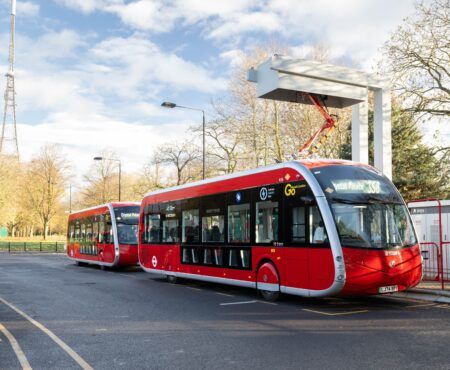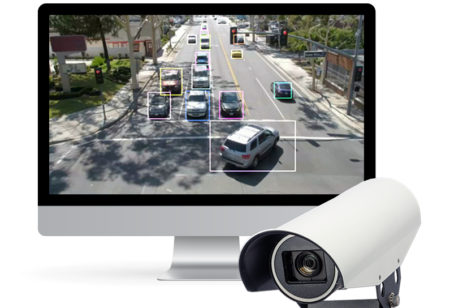Energy solutions provider, SSE Enterprise, has launched a new optical sensor that will help traffic managers to tackle the economic, social and environmental challenges posed by returning traffic and footfall to UK town and city centres post-Covid.
The Mayflower Insite – Sentinel sensor uses a camera (generally a ACTI B912 – a 5MP camera with PTZ) and identifies different road users at the edge, before reporting that information to cloud platforms. Resolution varies, depending on the field of view and from the resolution captured – with privacy masking sometimes restricting the field of view further.
The optical sensor counts and classify objects such as vehicles, bikes and people to assess traffic flow, motion paths, vehicle classification, velocity and pedestrian footfall. Additionally, the technology can be used to support the re-routing of traffic in emergencies, high volume situations or at times of high air pollution when combined with air quality sensor data.
The unit is designed to be deployed in areas which are illuminated using street lights and the device does support day and night scenarios.
The smart optical sensor allows traffic managers and commerce to act on key information regarding urban activity to better inform policies and strategies that reduce carbon emissions from transport, promote environmental forms of travel such as walking and cycling, and support safe social distancing.
Launched as part of a collaboration with Intel and AAEON, data collected by the optical sensor will help local authorities to implement plans for new mixed-use of environments and encourage a more diverse experience of community spaces in the wake of easing Covid restrictions.
SSE Enterprise is working with Cornwall Council where the technology is now providing data and insight to support the county’s net zero ambitions. Data gathered by the optical sensors will also inform the Council’s plans to revitalise town centres across the county through understanding both pedestrian movements and traffic flow.

Patrick Mitchell, head of Mayflower Smart Control at SSE Distributed Energy, says: “The ability to travel more freely is something we’ve all been looking forward to and, as restrictions ease further, pedestrian and road traffic levels are already beginning to reach pre-pandemic levels.
“For local authorities, such as Cornwall Council, and those responsible for managing our transport infrastructure and open pedestrian spaces, the challenge now is to ensure that we maintain and build upon the environmental progressions of the last 12 months.
“Mayflower’s collaboration with Intel and AAEON will benefit the vitality of towns, cities and spaces across the UK and Europe by making community spaces safer, greener and more vibrant post-Covid.”
Trish Blomfield, UK Country Manager at Intel, says, “We look forward to continuing the collaboration with SSE and Aaeon Technology to harness the power of data for smarter, safer, more efficient urban environments. The Mayflower optical sensor builds on that collaboration, transforming lighting fixtures with innovative IoT technologies, such as Intel Movidius chips and Intel OpenVINO toolkit, and enriching the lives of people who live and visit our cities and towns.”
Victor Lai, Managing Director of AAEON Europe, says: “As a leading manufacturer and designer of advanced embedded computing platforms and AI solutions, we are delighted to be bringing the hardware and intelligent services to SSE’s optical sensor. We are all working towards the shared goal of planning and building better cities for our citizens.”
The optical sensor ensures the anonymization of data through Edge data processing software technology to exemplify the highest respect for end-user privacy rights.
The sensor can also be integrated as part of SSE Enterprise’s Smart City Platform which combines resources in infrastructure, energy, transport and buildings to tackle challenges such as reducing air pollution levels to improve quality of life for communities.





